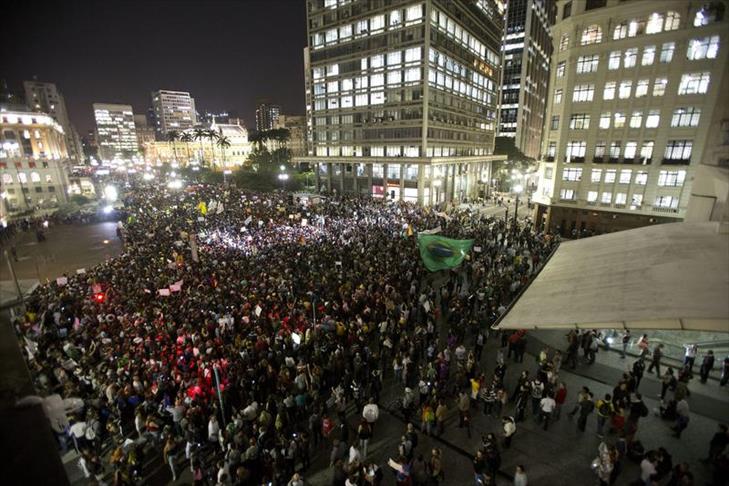
"My government is listening to the voices that call for change," said Rousseff. "Those who took to streets sent a clear message to the whole society, especially to political leaders at all levels."
The protests, which began on June 2 when Sao Paulo municipality decided to raise public transport prices, have since turned into much larger resentment against bad governance, poor health and education services, and high cost of living.
Ticket prices have since been returned to previous levels in several cities.
The demonstrations, which saw more than two hundred thousand people march in several cities across the country, have largely been peaceful, with some instances of violence during occasional clashes between police and protesters.
In Sao Paulo, the police used tear gas during protests where masked demonstrators attacked stores and banks, a police box and a press vehicle were set alight, and protesters fought a group among them that tried to forcibly enter the municipality building.
Demonstrators are also reported to have grown dissatisfied with the way the protests have been presented by the media. Much of the backlash centers on Global TV, criticized for not covering well enough the heavy-handed tactics police used in dispersing protesters in Sao Paulo last week.






